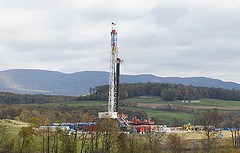Much has been discussed regarding wet and dry gas, and the need for gas processing plants to separate components other than methane often found in wet gas. How does dry gas and wet gas production affect the landowner and the royalty income?
Penn State Extension’s Shale Webinar on Aug. 21 will answer this question and more. Steven Karabin, PNGE, RL, president and chief executive officer of The Rhino Group, will provide an overview of dry and wet natural gas, the byproducts obtained from wet gas and the natural gas processing operations.
The impact on landowner royalty income streams regarding dry gas versus wet gas production will be discussed, as well as an overview of the differences in dry gas versus wet gas decline curves.
Karabin has a degree in petroleum and natural gas engineering and has worked as a drilling and reservoir engineer for various gas companies. He is a registered landman and has more than 25 years in the technical, business and financial background that is of benefit in helping landowners maximize returns and minimize risk.
“To date, more than $9 billion has been spent in the region to build natural gas processing plants. Industry leaders believe at least that much needs to be spent in the coming years to process all the natural gas and natural gas liquids being produced in the near future as well” states Karabin. Knowing the impacts of natural gas processing on royalty payments will be a plus to landowners.
The webinar will be held Aug. 21 from 1 p.m. – 2 p.m. While free, registrations for the webinars are necessary. All can go to the Penn State Extension Natural Gas Events page to register and to find out more information for each upcoming webinar.
For more information, contact Carol Loveland at 570-320-4429 or by email at cal24@psu.edu.
Penn State Extension’s Marcellus Education Team provides monthly webinars on a variety of topics. Other upcoming webinars for 2014 include:
– Sept 18, To Be Announced;
– Oct. 16, The Bakken Part 1: History and Challenges of Oil Development, Vicky Steiner, executive director, ND Association of Oil & Gas Producing Counties and Gerry Fisher, administrator, ND Energy Infrastructure and Impact Office;
– Nov 20, The Bakken Part 2: Responding to the Challenges; Recommendations for the Future, Deb Nelson, program manager, Vision West ND and Daryl Dukart, chairman, Vision West ND Consortium; and
– Dec 18, To Be Announced.
Previous webinars, publications and information also are available on the Penn State Extension natural-gas Web site, covering a variety of topics, such as Act 13, seismic testing, air pollution from gas development; water use and quality; natural gas liquids regional development, natural gas reserves; gas-leasing considerations for landowners; legal issues surrounding gas development; and the impact of Marcellus gas development on forestland.
